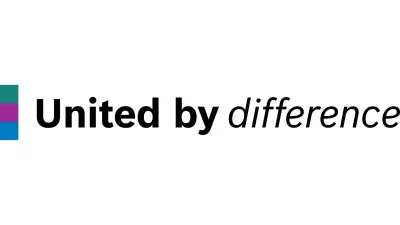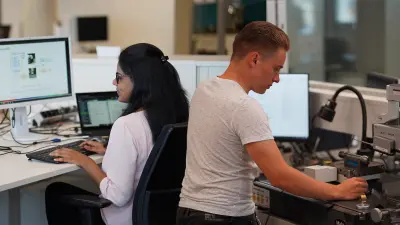Bosch – an employer of choice

The three P’s of sustainability – people, planet, prosperity – are inseparable as far as I’m concerned. Responsible treatment of people and the environment is firmly embedded in our corporate culture as well as in our associates’ mindsets.
Diversity, equity, and inclusion
At Bosch, we appreciate and encourage diversity, equity, and inclusion (DEI) for the enrichment they bring and see them as essential for our success.

Our vision is clear: we value diversity and appreciate everyone’s uniqueness as a driver of our business success. We are committed to include everyone and ensure equitable opportunities to unleash our full potential, foster an inclusive work environment and culture where all associates thrive, and create solutions invented for life.
Diversity brings unique perspectives that drive results, while inclusion fosters a respectful, empowering environment. We embed diversity, equity, and inclusion in our mission and strategy, guided by our Code of Conduct. Committed to dignity and fairness, we reject discrimination and create a workplace where everyone thrives regardless of gender, age, background, or other qualities. By valuing each individual’s strengths, we aim to enhance collective success.

During my journey at Bosch I get to know so many unique people, who daily inspire me by their experiences, passion, way of working and lifestyles. The diversity of our employees is our advantage — for the business and for me personally.
Social responsibility
Social responsibility has a long tradition at Bosch.
For us, it begins with fair treatment of our associates: in the “Basic principles of social responsibility at Bosch,” the board of management of Robert Bosch GmbH and the employee representatives commit, among other things, to complying with human rights, equal opportunities, fair working conditions, and global standards in occupational health and safety. The 11 principles are based on the core labor standards of the International Labour Organization (ILO). We contribute to improving human rights conditions worldwide by implementing due diligence obligations concerning human rights in our operational processes.
Identifying risks, avoiding accidents in the workplace
Preventing accidents and ensuring workplace safety is a crucial part of our responsibility as an employer.
By the end of 2025, we aim to lower the number of work-related accidents at Bosch to 1.45 accidents per 1 million hours worked. With an accident rate of 1.46 accidents per 1 million hours worked in 2024 (previous year: 1.49) we are well on track to achieve our goal.
A key to our success is recognizing hazards before an accident occurs. That is why we focus, among other things, on training and awareness-raising measures to identify risks at an early stage and prevent accidents at work. We draw on innovative concepts and new technologies to offer our associates attractive and varied training materials.
For further information on the number of occupational accidents at Bosch, see our key figures tool.

1.46 accidents per 1 million hours worked
We are well on track to reaching our goal: by the end of 2025, we aim to lower the number of work-related accidents at Bosch to 1.45 accidents per 1 million hours worked.
Occupational health
Each individual’s health is of vital importance both for our associates’ motivation and satisfaction and for Bosch as a responsible, high-performing company. We have therefore integrated occupational health in our fundamental principles of work and made them a fixed element of our corporate culture.

As a person’s health depends on many factors, associates and the company work together as part of a holistic approach to occupational health. Given that good leadership culture and team spirit among colleagues are key in this respect, guidelines for healthy management are firmly anchored in the “We LEAD Bosch” leadership principles.
Our occupational health management system “befit” covers a wide range of topics from preventive medical care and physical and mental fitness to mental health and right through to tips on a healthy diet and workplace design. An important role is also played by our reintegration management, as well as leadership, training, and competence development in relation to individuals’ health, and the integration of people with reduced capacity to work and severe disabilities.



